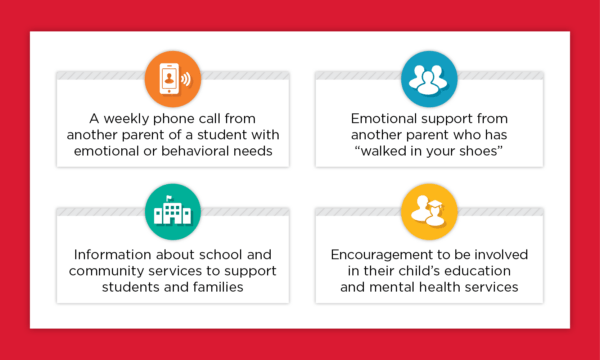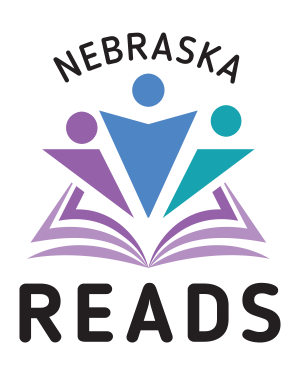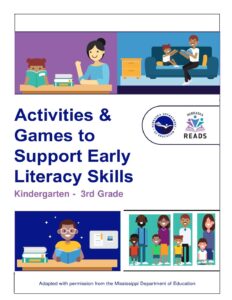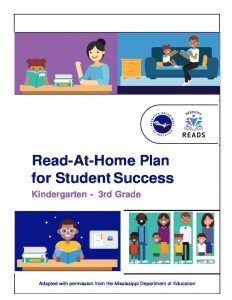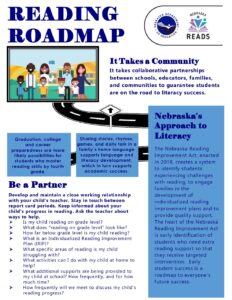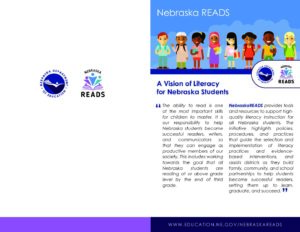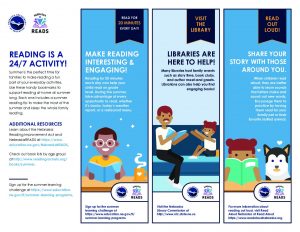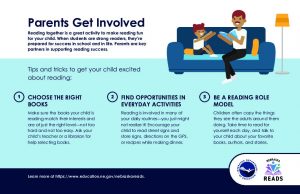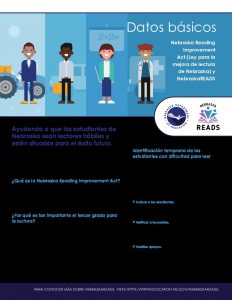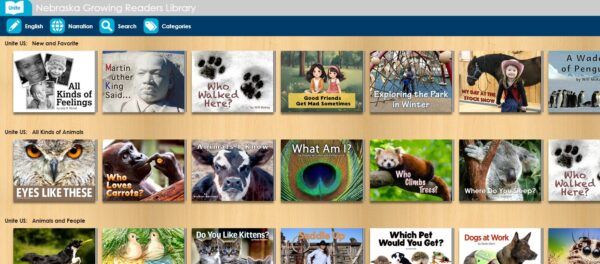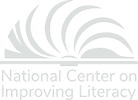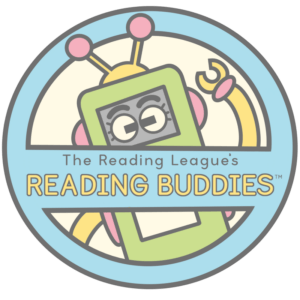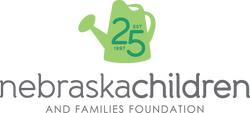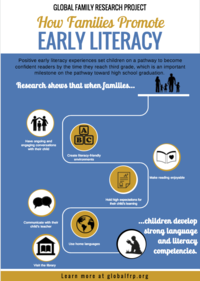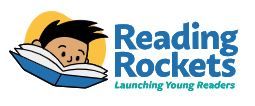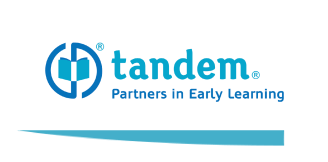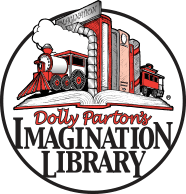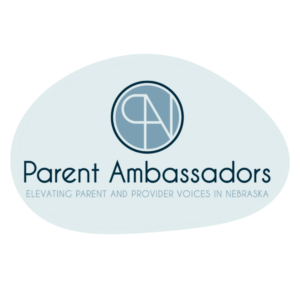Family Resources
Nebraska Reads Resources
Activities and Games to Support Early Literacy Skills
This resource of activities and games was created to support the development of the foundational skills needed to become a skilled reader. Also included are video links demonstrating how common household materials can be used to practice these reading skills. These engaging games and activities can be adapted and changed as a child’s reading ability grows.
Read-at-Home Plan for Student Success, Kindergarten – 3rd Grade
Dear Caregivers,
The Nebraska Department of Education recognizes the role of parents, guardians, and other caregivers and family members in making a positive impact on a child’s school success. Reading with children outside of school is the best way to help them achieve strong early literacy. Helping ensure a child is reading on grade level by 3rd grade is an important task. By reading with your child 20 minutes per day and making a few simple things a part of your daily routine, you can set your student along the path to proficiency.
This resource was created to assist you in understanding how to support your child’s reading development and progress. Using materials found around your home, you will be able to practice the skills necessary to help your child become a fluent reader. You will also find links to videos that show families engaging their child in some of the activities that are listed. This resource also includes information on the Nebraska Reading Improvement Act, which was created to ensure all students are ready for success in school and beyond.
We are happy to provide you with this Read-At-Home Plan.
Sincerely,
Olivia Alberts, Reading Specialist
Becky Michael, English Language Arts Specialist
Download a PDF version of the Read-At-Home Plan (6 Languages)
Helpful information to guarantee your child is on the road to early literacy success.
Learn how the Nebraska Reading Improvement Act ensures all students are ready for success in school and beyond.
Make reading fun with these downloadable bookmarks! Three designs include reading tips and encourage children to read each day.
Stay engaged with reading all year long with these downloadable postcards. Each postcard focuses on a different topic – from general tips and tricks about reading with your child, to information about the NebraskaREADS program, to summer reading.
Family Literacy Resources
Unite believes in a world where all children have access to an abundance of books that celebrate their languages and cultures and cultivate a lifelong love of reading. Check out their free digital library that offers the option to narrate books in over 50 languages. For information on how to navigate the Nebraska Growing Readers Library, please visit Navigating the Nebraska Growing Readers.
The National Center on Improving Literacy has a great page for parents and families. Help your child read and write with practical ideas and strategies based on what works. Explore by selecting multiple topics: DYSLEXIA, BEGINNING READING, INTERVENTIONS, SCREENING, ADVOCACY, AND PARTNERSHIPS. https://improvingliteracy.org/family
Dott, Alphabott, and the Alphabotteers are teaching Dusty the Dog to read. That’s what makes them Reading Buddies! Combining the science of reading with lots of laughs, Reading Buddies is the fun way to teach aspiring readers the foundational components of reading. https://www.trlreadingbuddies.org/
Nebraska Children and Families Foundation supports children, young adults, and families with the overall goal of giving our state’s kids what they need to thrive. We do this by building strong communities that support families so their children can grow up to be successful, productive adults. Please visit https://www.nebraskachildren.org/ for more information on how to maximize the potential of Nebraska’s children, youth, and families through collaboration and community-centered impact.
Colorín Colorado is a national multimedia project that offers a wealth of bilingual, research-based information, activities, and advice for educators and families of English language learners (ELLs). There are lots of ways that you can help your children learn to read! From the time that they are babies to the time that they are in high school, there are many little steps you can take along the way — rhyming and singing songs, reading out loud, sounding out letters, going to the library, and reading books together in your home language. Helping your children learn to read might also mean finding support if they are having difficulty, which can affect their future success. This section is filled with tips for what you can do at home, fun activities, suggestions for choosing books to share together, and ideas on how you can prepare your child for a lifetime and love of reading. https://www.colorincolorado.org/help-your-child-learn-read
Seven Research-Based Ways Families Promote Early Literacy
These downloadable infographics from the Global Family Research Project highlight several research-based ways families can promote early literacy. It is available in both English and Spanish.
Written especially for parents, Growing Readers provides monthly tips for raising strong readers and writers. In this section, you’ll find a wide range of simple activities to encourage word play as well as strengthen your child’s fluency, vocabulary, comprehension, critical thinking, and writing skills.
All of the Growing Readers tip sheets here are available in English and Spanish, with downloadable PDFs for printing and sharing! https://www.readingrockets.org/literacy-home/literacy-tips-activities/growing-readers/family-literacy-activities
64% of 10 year-olds around the world can’t read and understand a simple story. BookSmart addresses this need by providing the books and the support required to build a habit of reading from a young age. With the free BookSmart app, children have the required tools to build their reading skills through high-quality books, activities that reinforce reading skills in fun and interactive ways, and where they are celebrated for their reading success. https://booksmart.worldreader.org/BookSmart/Welcome/Start
A cornerstone of Tandem’s work is the enduring idea that books should reflect children’s lived experiences and introduce them to the lived experiences of others. Tandem offers a variety of storytime videos and activity guides in multiple languages, including English and Spanish. They also provide culturally responsive booklists and activities.
Family Literacy – in which multiple generations from the same family engage in learning together – has been at the heart of NCFL’s work for more than 30 years. Our family literacy programming is a powerful tool to support family well-being and serve as a catalyst for positive change in communities. https://familieslearning.org/what-we-do/family-literacy/
Dialogic reading works. Children who have been read to dialogically are substantially ahead of children who have been read to traditionally on tests of language development. Children can jump ahead by several months in just a few weeks of dialogic reading. https://www.readingrockets.org/topics/early-literacy-development/articles/dialogic-reading-effective-way-read-aloud-young-children#:~:text=Dialogic%20reading%20is%20just%20children,Keep%20it%20light.
Written by: Grover J. (Russ) Whitehurst
Dolly Parton’s Imagination Library is dedicated to inspiring a love of reading by gifting books free of charge to children from birth to age five, through funding shared by Dolly Parton and local community partners in the United States, Canada, United Kingdom, Australia and Republic of Ireland. https://imaginationlibrary.com/
The Parent Ambassador Program is a year-long leadership and advocacy program for parents of early learners in Nebraska. The goal of this program is to develop parent leaders and support them in advocating for their children, themselves, and their communities. https://nebraskaearly.org/parents/neambassadors/
Parent Connectors is an innovative parent-to-parent support program developed specifically to meet the unique needs of families who have children with emotional or behavioral challenges. Parent Connectors was developed based on the personal experiences of families while incorporating the latest research-based theories on human behavior.
Our goal is to support parents by training and supporting schools or community service agencies to provide Parent Connectors, which includes the activities in the red box. https://cehs.unl.edu/parentconnectors/
